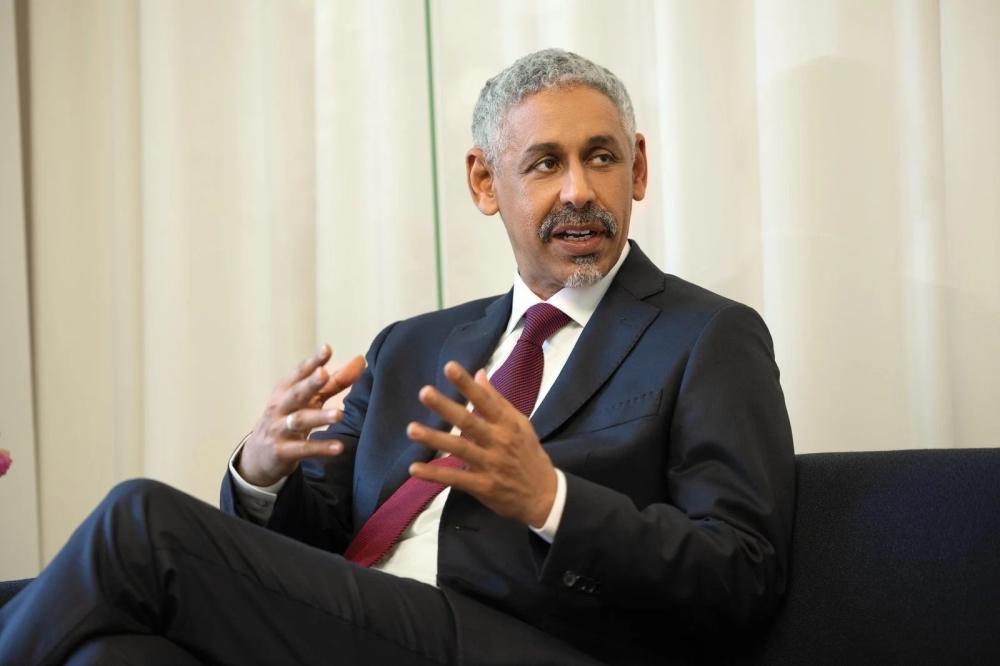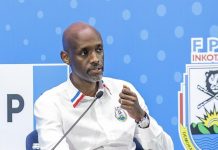Africa-Press – Rwanda. Sidi Ould Tah, the newly elected President of the African Development Bank (AfDB), who assumed his duties in May, has laid out an ambitious five-year vision to guide the institution through his mandate.
The plan is built on what he calls the four cardinal points, a strategic framework designed to complement the bank’s traditional “High 5” priorities with a sharper focus on finance, institutions, demographics, and climate resilience.
The Mauritanian economist, who succeeded Nigerian economist Akinwumi Adesina, emphasized that his vision does not replace AfDB’s long-standing agenda, “Feed Africa, Light up Africa, Industrialize Africa, Integrate Africa, and Improve the Quality of Life for the People of Africa,” but seeks to enhance it with transformative policies to meet the continent’s development challenges.
“In a time of fiscal pressures, rapid demographic growth, and escalating climate threats, Africa cannot afford business as usual,” Tah said. “The AfDB must become more than a financier. It must be a catalyst for transformation.”
Mobilizing Africa’s financial resources
Central to Tah’s vision is narrowing Africa’s persistent financing gap, which is estimated at more than $400 billion annually. He stressed that the continent has the means to bridge this deficit if resources are better mobilized and more efficiently deployed.
“We must mobilize Africa’s financial resources by improving access to capital at scale,” he said. “Our strategy calls for a radical rethinking of how we raise, deploy, and leverage capital. Every dollar we raise should generate tenfold impact.”
Drawing on his record as the head of the Arab Bank for Economic Development in Africa (BADEA), Tah underscored the power of blended finance, innovative instruments such as green and social bonds, and partnerships that multiply investment flows. He pledged to overhaul AfDB’s business model to accelerate project development, syndicate investments, and expand capital turnover.
“African institutions, when well capitalized and connected, can unlock outsized impact,” he noted. “By establishing regional capital pools and risk-sharing platforms, we can reduce borrowing costs and improve Africa’s creditworthiness on the global stage.”
Reforming and consolidating financial systems
Tah also placed a strong emphasis on building Africa’s financial sovereignty through deep institutional reforms. He argued that Africa must move beyond fragmented, country-specific approaches and embrace continent-wide systems capable of asserting influence in global economic forums.
“Africa has a wealth of natural assets and a growing pool of domestic capital that remains largely untapped,” he said. “By enhancing tax mobilization, reforming public expenditure, and tapping into pension funds and remittances, we can reduce dependency on external sources.”
He noted that global power shifts, tariff wars, and debt vulnerabilities have exposed Africa’s fragility, insisting that the AfDB must lead reforms to strengthen governance and accountability.
“Unifying our fragmented financial institutions into a cohesive pan-African network will lower the cost of capital and amplify our voice globally,” Tah argued. “Reforming global financial governance—through fairer credit ratings, better debt management, and recalibrated rules of capital allocation—is critical for Africa to take its rightful place in shaping the future of finance.”
Harnessing demographic transformation for economic development
With Africa’s population projected to double by 2050, Tah framed demographic transformation as both a challenge and an unprecedented opportunity. He called for bold policies to integrate informal enterprises into the formal economy, provide affordable credit, and scale up support for small and medium-sized businesses.
“Africa’s youth and women are not a burden; they are the engine of development,” he said. “To unlock this potential, we must create ecosystems where entrepreneurs thrive, where vocational training is prioritized, and where digital marketplaces open new frontiers for growth.”
He proposed the creation of an “Africa Skills Passport” to facilitate labour mobility across the continent and the establishment of training centres aligned with the demands of AI, digitalization, and new industrial sectors.
“The future of Africa’s growth hinges on a skilled, future-ready workforce,” Tah stressed. “By equipping our people with the right tools, we can transform demographic growth into a lasting dividend.”
Building climate-resilient infrastructure and robust value addition
Tah’s fourth pillar focuses on building infrastructure that not only drives growth but also withstands the realities of climate change. He pointed to Africa’s vast infrastructural deficits, from energy systems to transport networks, and urged investment in climate-resilient, sustainable solutions.
“Infrastructure development for Africa is not just about roads and bridges,” he said, “it is about resilient systems that secure our future. This means modern energy grids that integrate renewables, cities adapted to climate realities, and industrial hubs that add value to Africa’s raw materials.”
He called for a just and gradual energy transition that balances Africa’s right to industrialize with global climate demands.
“Africa is the lowest carbon emitter yet the most affected by climate change,” he noted. “Rather than banning oil and gas outright, we must pursue a balanced transition that ensures energy security and affordability while scaling renewable investments.”
Highlighting the promise of the digital economy, Tah also urged investment in broadband, data centres, and AI-driven technologies.
“By harmonizing physical and digital connectivity, we can leapfrog traditional models and position Africa as a global leader in innovation and productivity,” said the AfDB boss.
For More News And Analysis About Rwanda Follow Africa-Press






